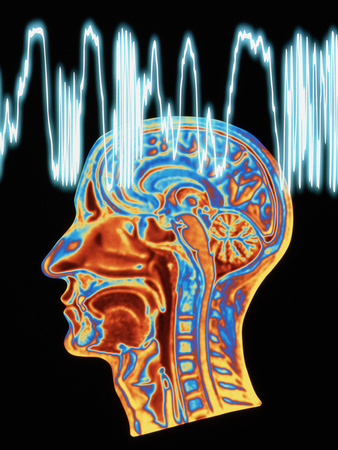From a study by J S Jenkins :
In 23 of 29 patients with focal discharges or bursts of generalized spike and wave complexes who listened to the Mozart piano sonata K448 there was a significant decrease in epileptiform activity as shown by the electroencephalogram (EEG). Some individual patients showed especially striking improvement. In one male, unconscious with status epilepticus, ictal patterns were present 62% of the time, whereas during exposure to Mozart’s music this value fell to 21%. In two other patients with status epilepticus continuous bilateral spike and wave complexes were recorded 90-100% of the time before the music, suddenly falling to about 50% 5 minutes after the music began. The fact that improvement took place even in a comatose patient demonstrates again that appreciation of the music is not a necessary feature of the Mozart effect. To determine whether this music could exert a longer effect, studies were conducted in an eight-year-old girl with a particularly intractable form of childhood epilepsy, the Lennox—Gastaut syndrome, with many drop attacks accompanied by bilateral spike and wave complexes and focal discharges from the right posterior temporal area. Mozart’s sonata was played every 10 minutes for each hour of the day when she was awake. At the end of the waking period the number of clinical seizures had fallen from 9 during the initial four hours to one during the last four hours and the number of seconds during which general discharges occurred fell from 317 to 178. The following day the number of attacks was two in seven and half hours.
In the picture that was formerly available but has since disappeared from the internet, the top row showed brain activity of an epileptic during a seizure while listening to Mozart. The bottom row showed brain activity of an epileptic during a seizure before listening to Mozart. The top row was much quieter, with fewer strong peaks and valleys.
These case studies are fascinating and certainly the results are striking enough. It may be worth your while to try.
Remember that some epileptics have musicogenic seizures, and therefore I urge you to consult with your doctor before trying any of this yourself!
